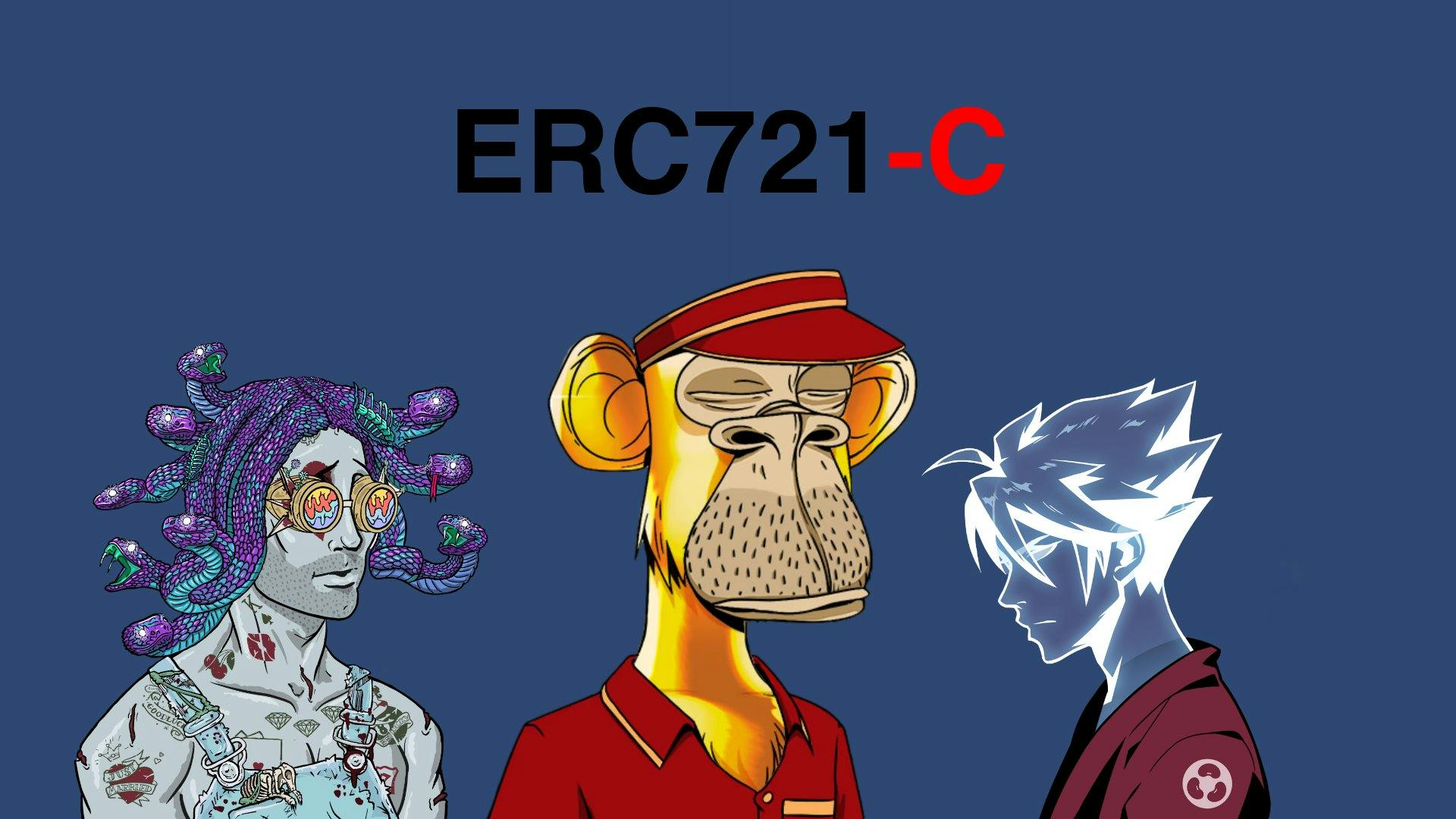
ERC721-c: The Future of Digital Royalties
NFTs have changed forever & How you can capitalize on it as a creator
Definition and key features
ERC721-C will finally eliminate workarounds and make on-chain royalties enforceable through the use of transfer security policies that allow creators to decide how permissive token transfers are for their own collections, opening the door to new forms of royalties that can reward both creators, communities, partners, and affiliates.
Simply put programmable royalties is the way creators or developers can set new rules for where, when & how royalties are transferred
Comparison to previous standards (ERC20, ERC721)
When NFTs like the ERC20 & ERC721 were first created, there was no way to set royalties on them. This meant that the creator of an NFT did not get any money when their NFT was sold.
To address this problem, the EIP-2981 NFT Royalty Standard (A standardized way to retrieve royalty payment information for non-fungible tokens (NFTs) to enable universal support for royalty payments across all NFT marketplaces and ecosystem participants) was created. This standard allows creators to set royalties on their NFTs. However, there is no way to enforce these royalties. This means that people can still sell NFTs without paying the creator any royalties.
To address this problem, the ERC721-C and ERC1155-C standards were created. These standards allow creators to choose who can buy and sell their NFTs. This means that creators can prevent people from selling their NFTs without paying royalties.
The new standards are designed to address these problems by giving creators more control over who can buy and sell their NFTs. This will help to ensure that creators get paid for their work and that the NFT market is fair for everyone.
Enhancing provenance and ownership
ERC721-C provides the enforcement mechanism that was missing from EIP-2981. This means that creators can now be sure that they will get paid royalties when their NFTs are sold. This is a big step forward for the NFT industry because it will help to protect creators and ensure that they get paid for their work.
In addition to providing an enforcement mechanism, ERC721-C also makes it possible to build novel programmable royalty contracts. These contracts can be used to create dynamic, equitable, and rewarding ways for creators to share royalties with their communities, partners, and affiliates. This will help to build stronger communities around NFTs and create new opportunities for creators to monetize their work.
Here are some examples of how developers can use ERC721-C to enhance provenance and ownership:
Developers can use ERC721-C to create royalty contracts that pay out royalties to the original creator, the community that helped to create the NFT, and the platform that sold the NFT. This would help to ensure that everyone who contributed to the creation and sale of the NFT is rewarded.
Developers can use ERC721-C to create royalty contracts that pay out royalties based on the number of times an NFT is traded. This would encourage people to hold onto NFTs for longer periods of time, which would help to create a more stable and sustainable NFT market.
Developers can use ERC721-C to create royalty contracts that pay out royalties based on the use of an NFT. This would encourage people to use NFTs in creative and innovative ways, which would help to expand the possibilities of the NFT ecosystem.
Long-term income streams for creators
The Minimum Floor Operator and Enforceable Royalty Sharing features will create long-term income streams for creators in a number of ways. First, they will allow creators to set minimum sale prices for their NFTs, which will help to ensure that they are not undersold. Second, they will allow creators to share royalties with their communities, which will help to build loyalty and support. Third, they will allow creators to dynamically change the royalty share, which will allow them to adapt to changing market conditions. Finally, they will allow creators to share royalties with collectors, which will help to build a strong community around their NFTs.
Here are some additional details about how these features can benefit creators:
Minimum Floor Operator: The Minimum Floor Operator allows creators to set a minimum sale price for their NFTs. This means that their NFTs cannot be sold for less than the specified price. This can help to prevent creators from being undersold and can help to ensure that they receive a fair price for their work.
Enforceable Royalty Sharing: The Enforceable Royalty Sharing feature allows creators to share royalties with their communities. This can be done by sharing royalties with NFT holders, affiliates, or other stakeholders. This can help to build loyalty and support for a creator's work and can help to create a sustainable income stream.
These features are still under development, but they have the potential to revolutionize the way that creators earn money from their NFTs.
Increased market liquidity for collectors
ERC721-C allows collectors to fractionalize NFTs, which means that they can buy and sell shares in an NFT. This makes it more affordable for collectors to buy NFTs and it also makes it easier for them to sell NFTs if they need to. Second, ERC721-C allows collectors to trade NFTs on decentralized exchanges, which means that they can buy and sell NFTs without having to go through a centralized exchange. This makes it easier for collectors to buy and sell NFTs and it also gives them more control over their NFTs, Effectively increasing market liquidity
Considerations
It is important to note that Limit Break and DigiDaigaku (the creators) teams are still planning how they might implement these solutions so don’t make any assumptions on how this will work for either team or their products yet.
Overall, ERC721-C is a powerful tool that has the potential to change the way that we interact with digital goods. It is still early days, but ERC721-C has the potential to revolutionize the way that we create, distribute, and own digital goods.
